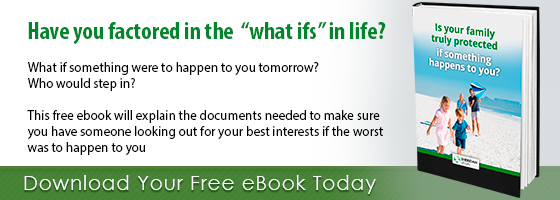You can contest a will if you feel you have been inadequately provided for or left out altogether.
There are plenty of reasons why you may feel that you have not been adequately provided for in a will. The law allows certain eligible people who feel they haven’t been fairly provided for to make a claim and contest a will.
You can contest a will within 12 months of a person’s death.
Who can contest a will?
A spouse, de facto partner, ex-spouse, children or dependants and anyone who had a close personal relationship with the deceased can contest the will.
Grounds for contesting a will:
If the will doesn’t include you
For example, if you are not a beneficiary of the will while your siblings are. You can contest the will on the basis that you haven’t received a fair share.
Unfair division
For example, if you receive a smaller share than your siblings, for no apparent reason, you may be entitled to contest the will because you haven’t received a fair share.
Dependant of the deceased
If you are a dependant of the deceased but have not been provided for in the will, you can make a claim.
Under the Family Provision chapter of the Succession Act, there must be adequate provision for the needs of all dependants. The Act allows the Court to change the division of the estate if the will does not make adequate provision for all eligible beneficiaries.
Invalid will
A valid will must be in writing and be properly executed and witnessed.
If the will does not comply with all the formal requirements, then it may be declared invalid. It must be witnessed by two people who do not benefit from the division of the will. It must nominate an executor. Finally, the will must not have been created with any undue influence.
Testamentary capacity
The testator is the person who makes the will. When a new will is created, the testator must have sufficient mental capacity or comprehension at the time. They must know and understand what they are signing. This can be called into question if the testator was elderly or unwell at the time of making the will.
Undue influence
If a will was created with the help of someone who stands to benefit from it, this can be considered undue influence. It has to be proven that the person deceived, intimidated or threated the person making the will.
Duress
Similar to undue influence, a will created under duress usually involves harassment or threats, damage to property or refusal to perform an act in order to coerce the testator to make a will a certain way. For example, a child may refuse to allow their parent to have contact with their grandchildren if they are not gifted a certain item in the will.
As with undue influence, a will made under duress can be declared invalid by the Court.

What happens if the deceased did not leave a will?
The Succession Act includes ‘rules of intestacy’ which are used to decide how an estate should be distributed if there is no will. The majority of the estate is usually allocated to the deceased’s spouse. This means others who were dependant on the deceased often don’t receive a fair share or are left out altogether.
What happens if a will is declared invalid?
If the current will is declared invalid by the Court, then an earlier will made by that person will be held as the deceased’s last will. If the deceased had no other will then they die “intestate” and their estate will be distributed under the ‘rules of intestacy’.
Where can I get more information?
If you feel that you have not been adequately provided for in a will, contact us. We can advise you whether you are an eligible person and whether you will be entitled to make a claim. There are strict time limits and a claim needs to be made within 12 months of a person’s death.


